Here you will find a small sample of the various digital transformation consultancy projects that we have supported to create meaningful and beneficial change across the health and care sectors.
At Channel 3 we support our clients across the entire change journey, from the initial thinking and ideas stage, into delivering that change in a sustainable way and then assessing and improving impact.
This is how we help to build better lives through supporting better care that is underpinned by better digital.
If you would like to discuss how we can support your journey towards a digitally enabled health and social care future, then please contact us to discover more. You can also find more detailed case studies on the Our Work page.
Jump to a digital transformation project that is relevant to you:
👉 Shared care record at Leicester, Leicestershire and Rutland
👉 Digital social care record at Buckinghamshire, Oxfordshire and Berkshire West ICS
👉 End-to-end EPR implementation at Cambridgeshire and Peterborough NHS Foundation Trust
👉 EPR implementation resourcing partner with Bermuda Hospitals Board
👉 Discharge to assess at Staffordshire and Stoke-on-Trent Integrated Care System
👉 Wearable tech with NHS England
👉 Robotic process automation at Central and North West London NHS Foundation Trust

Shared care record at Leicester, Leicestershire and Rutland (LLR)
Giving Leicester, Leicestershire and Rutland (LLR) health and social care staff the ability to access and share patient information quickly and securely.
Channel 3 supported the delivery of a shared care record for the LLR region. This included both health and social care organisations from Leicester City, Leicestershire County, Rutland County, University Hospital Leicestershire and Leicestershire Partnership Trust.
Since 2021 we have been working in partnership with LLRCR in the following key areas:
• Onboarding assurance to ensure that the workforce received adequate training, support and resources to make the most of the new platform;
• Project management office and pilot go-live rollout; and
• Benefits realisation to ensure that the planned benefits from the project were achieved and can be sustained over time.
Channel 3’s relationship with LLR is built upon blended teams and collaborative ways of working with each other. We are privileged to be considered as a key part of their team.
Laura Godtschalk, LLRCR Programme ManagerChannel 3 has been a key partner and invaluable resource in the delivery of our shared care record from the early days, providing expert advice and support. They sought to fully understand the LLR organisational needs and programme direction and were able to seamlessly immerse into the individual projects. They are always highly professional, knowledgeable and work with integrity, whilst also having a knack of simplifying complex processes without being simplistic. We are looking forward to continuing our journey with them as we deliver the record for the population across Leicester, Leicestershire and Rutland.
📰 Read more about this shared care record work with LLR in the news: About the LLR Care Record.
📚 Discover more about shared care records on our website: Shared insights and shared experiences of shared care records and Shared Care Records Implementation: The Journey To Success.
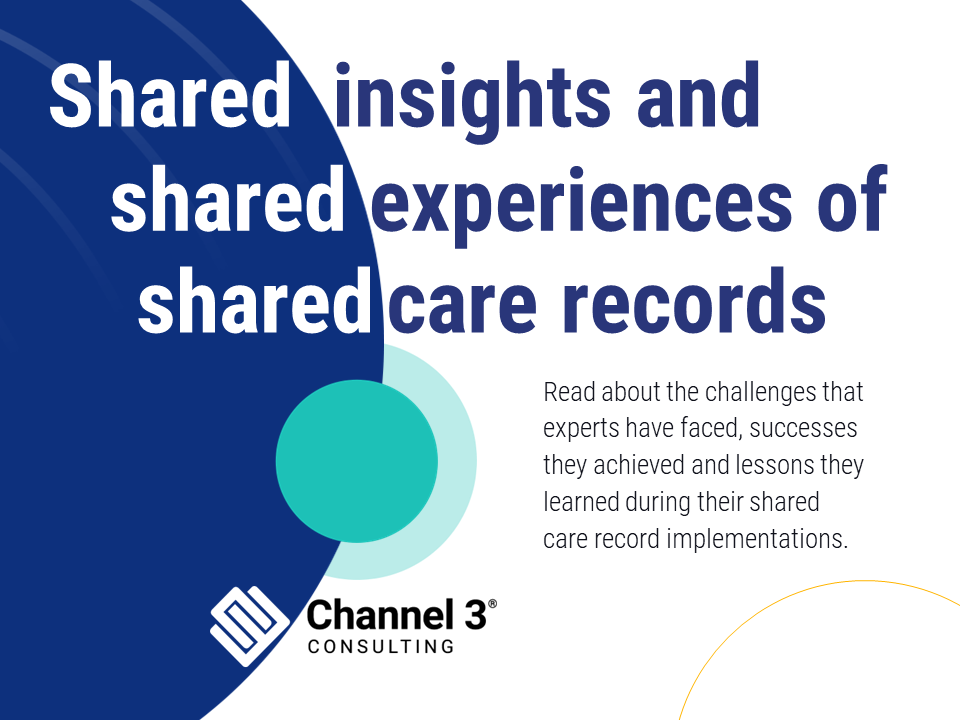
^^ Return to case study menu ^^

Digital social care record at Buckinghamshire, Oxfordshire and Berkshire West (BOB) Integrated Care System
Providing Buckinghamshire, Oxfordshire and Berkshire West ICS social care professionals quick and secure access to accurate and up-to-date information.
Channel 3 has been working in BOB ICS to engage with several care home and home care providers to gain their commitment to implement a digital social care record (DSCR).
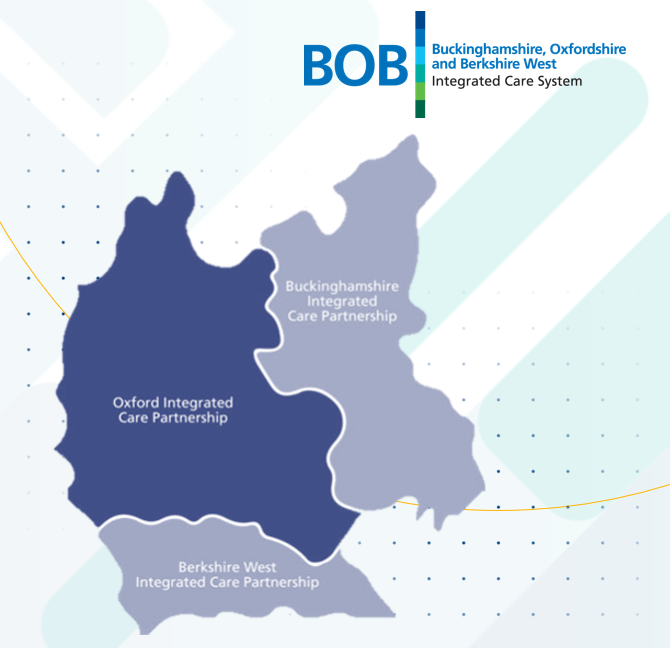
BOB ICS wanted 70 providers to commit to implementing a DSCR with an assured supplier. This involved:
• Planning and delivering a provider/supplier event to help providers choose a supplier from an assured supplier framework;
• Building relationships with 200 suppliers, who had various levels of digital maturity; and
• Helping BOB ICS gain commitment from the providers to match fund the investment provided by the ICS.
Channel 3 has achieved and exceeded these requirements. We plan to support BOB ICS into year two to implement the solutions, increase the number of providers signing up to implement a DSCR and help implement sensor-based falls technology to reduce ambulance conveyance to hospitals.
📰 Read more about this digital social care record work in the news: More information about BOB ICS DSCR funding.
📚 Discover more about the digital social care record programme on our website: Focussing on the Digital Social Care Record Programme.
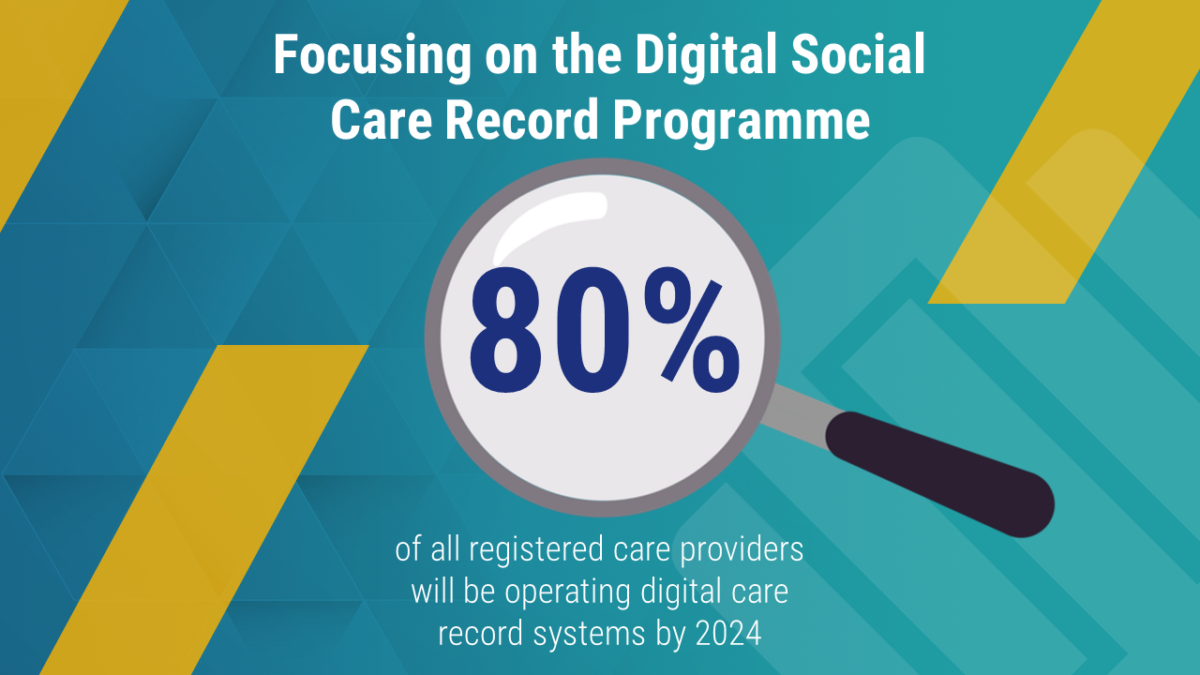
^^ Return to case study menu ^^
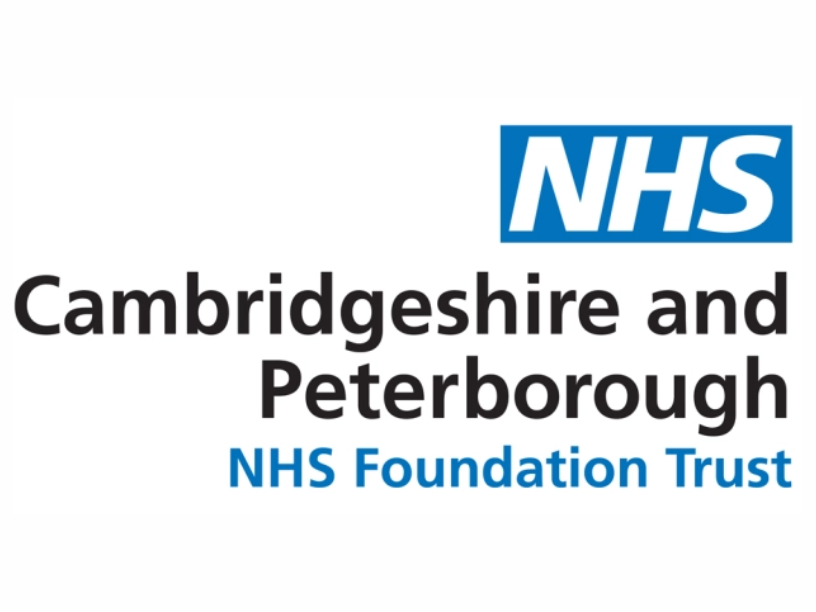
End-to-end EPR implementation at Cambridge and Peterborough NHS Foundation Trust
Putting in place and connecting a SystmOne electronic patient record (EPR) system at Cambridge and Peterborough NHS Foundation Trust (CPFT).
Channel 3 partnered with CPFT to fully unlock technology’s potential.
We guided them through selecting and implementing their ideal clinical system, including creating a compelling EPR business case for evidence-based decision-making.
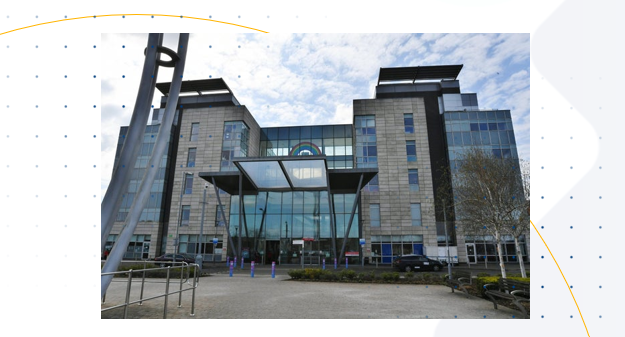
We positioned CPFT’s SystmOne EPR programme as a successful business change programme, not just an IT implementation.
Our blended team, including trust staff, led the phased implementation plan with an emphasis on governance, change management and communication.
Scott Haldane, Director of Finance at Cambridgeshire and Peterborough NHS FTFrom the very start, Channel 3 was very much in-tune with what we wanted to achieve. Through the readiness assessment work, Channel 3 helped reinforce a lot of what we already knew about ourselves, the good and the bad, and helped us build an ideal blended resource profile for the challenge ahead. We quickly realised that the work that Channel 3 had done, drawing on their experience of similar programmes elsewhere, formed the basis for a very clear path aimed at giving us every possible chance of a successful outcome to this critical transformation programme.
📰 Read more about this end-to-end EPR implementation project in the news: Cambridgeshire and Peterborough starts new EPR journey, Digital Health.
📚 Discover more about EPR implementation on our website: Electronic Patient Record (EPR) Implementation – Five Success Factors and Getting Cambridgeshire and Peterborough NHS FT ready for an electronic patient record.
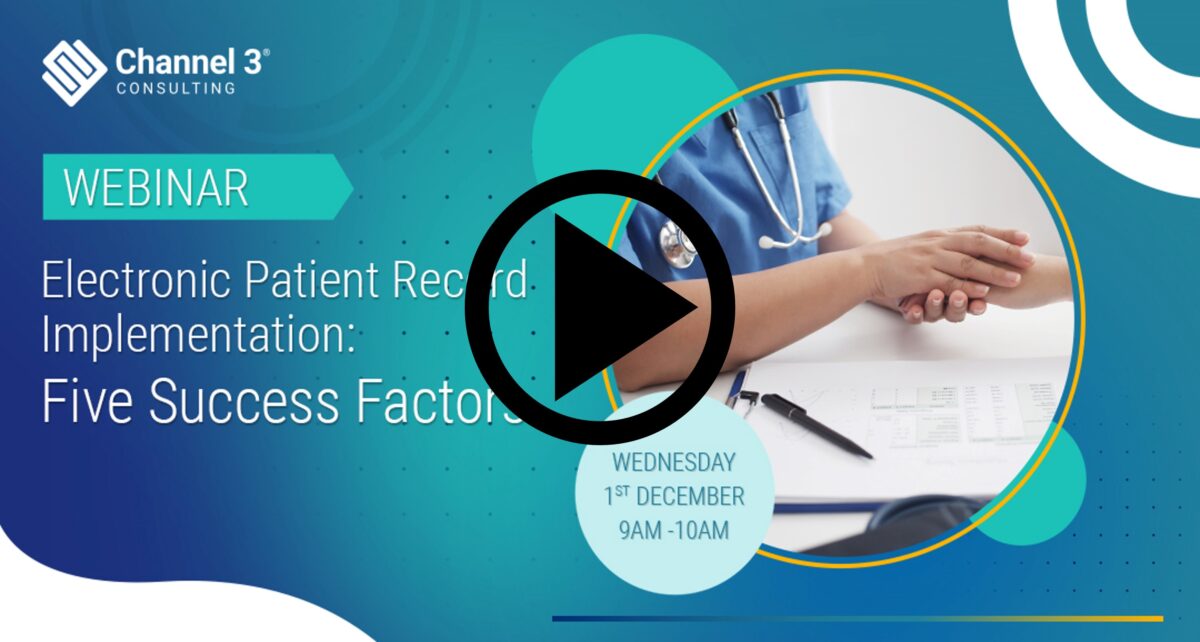
^^ Return to case study menu ^^
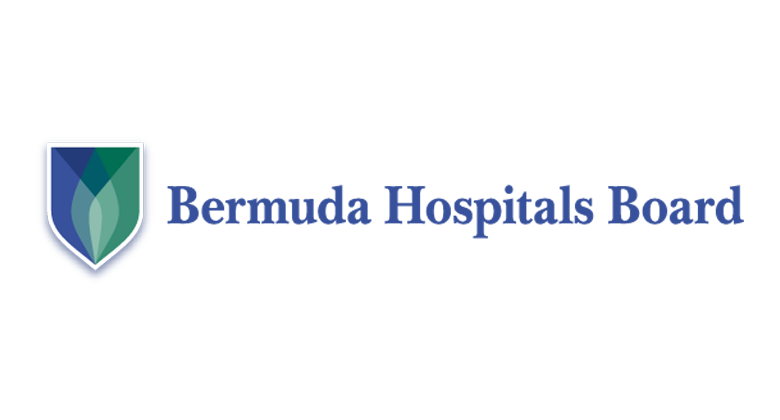
EPR implementation resourcing partner with Bermuda Hospitals Board
Introducing a new EPR to Bermuda Hospitals Board and going big on benefits.
The project vision was to replace Bermuda’s 60-year-old paper-based system with a modern Cerner EPR.
Channel 3 was commissioned to perform an initial gateway review to assess the feasibility of the project and ensure that it was in alignment with the organisation’s strategic objectives. Then, to deliver an effective implementation, build a partnership between suppliers, commissioners, clinicians and those in charge.

Throughout the project, we made sure to keep our focus on realising the benefits we set out to achieve. This approach of starting with the end goal in mind was central to our approach.
Channel 3 created a partnership between suppliers, commissioners, clinicians and those in charge of implementation. We called it the four legs of the table and those principles enabled us to become part of their team and drive the project forward in unison.
Bill Shields, Joint Senior Responsible Owner at Bermuda Health BoardIn EPR implementations worldwide, benefits are often an afterthought. Channel 3 created a benefits schedule which was developed at the same as we were involved in the build and implementation. They made benefits realisation a core part of the process.
📰 Read more about this EPR implementation in the news: Electronic medical record system in place across Bermuda Hospitals, Health Tech Newspaper.
📚 Discover more about EPR implementation on our website: EPR implementation is a team sport: On-demand webinar.
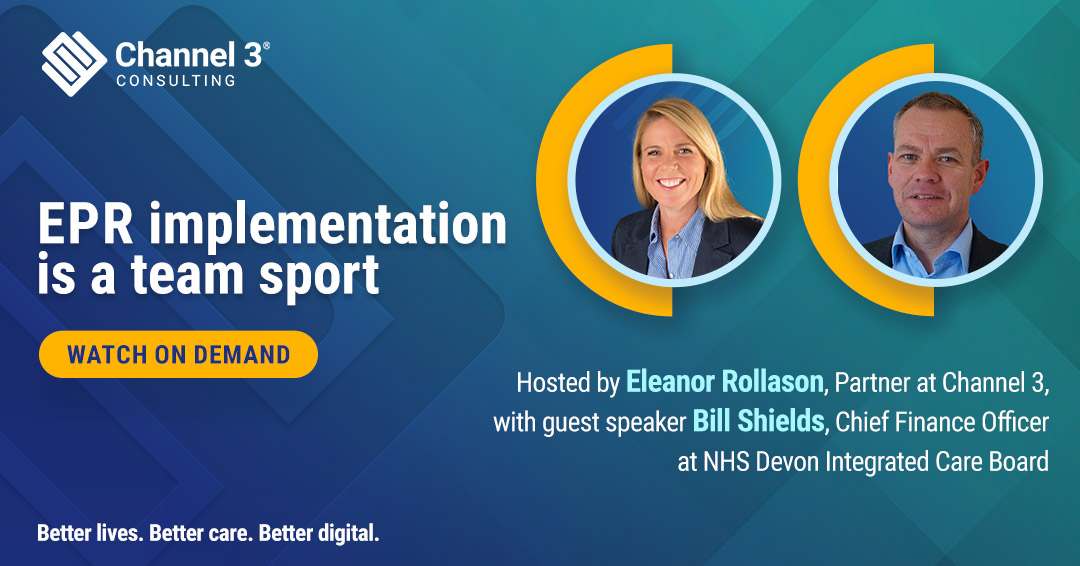
^^ Return to case study menu ^^

Discharge to assess at Staffordshire and Stoke-on-Trent Integrated Care System
Helping Staffordshire and Stoke-on-Trent ICS to get people out of care settings and back home in a safe way.
Channel 3 partnered with Grant Thornton to improve discharges from the University Hospitals of North Midlands through the Home First service in Stoke and Staffordshire.
The project aimed to increase independence and reduce the length of stay for care receivers, while preventing long-term care packages. It focused on promoting teamwork and leveraging individuals’ strengths to achieve these goals.
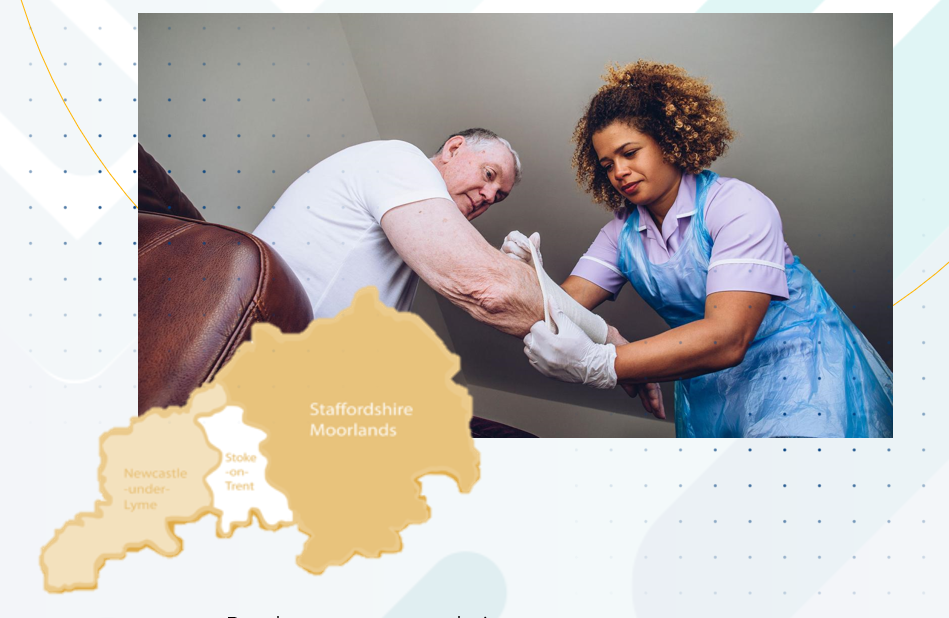
Within four weeks, the project led to:
• Six avoided long-term care packages;
• Reduced length of stay by 192 days; and
• Prevented social care referrals for 17 cases.
Channel 3’s change team worked with frontline social workers, clinicians and managers to support cultural change and improve access to community solutions and technology-enabled care.
We also trained and upskilled frontline staff to problem-solve, develop collaborative working and commit to regular reflective sessions.
The project demonstrated that working alongside frontline teams can improve outcomes and reduce costs.
📚 Discover more about discharge to assess on our website: How can you use D2A funding to implement short- and medium-term plans that meet the needs of your population?

^^ Return to case study menu ^^
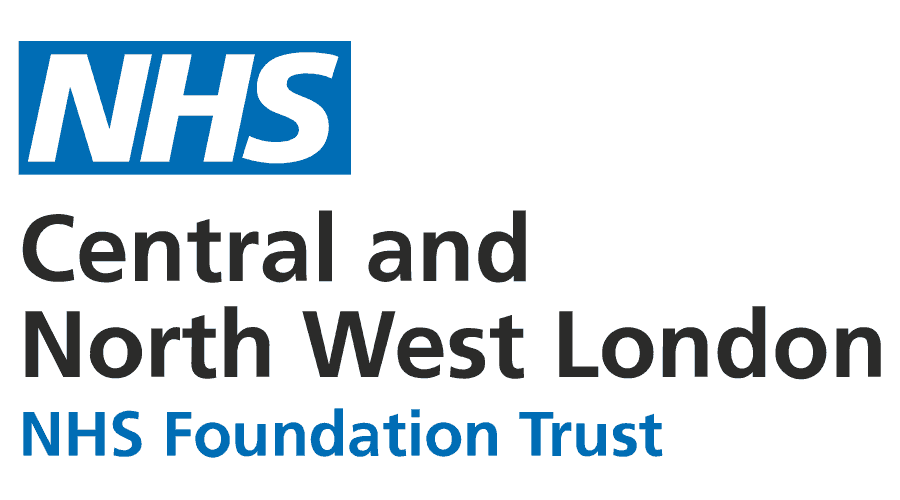
Electronic prescribing and medicines administration at Central and North West London NHS Foundation Trust
Freeing up staff at Central and North West London (CNWL) NHS FT to spend more time with patients.
CNWL and Channel 3 recognised that implementing an electronic prescribing and medicines administration (EPMA) system would improve efficiency, increase clinical safety and reduce time wasted from manual and paper-based processes.
We also understood that building wide support from all staff was crucial for long-term success. This ensured a smooth implementation and staff fully embraced the technology, which meant they used it to its full potential.
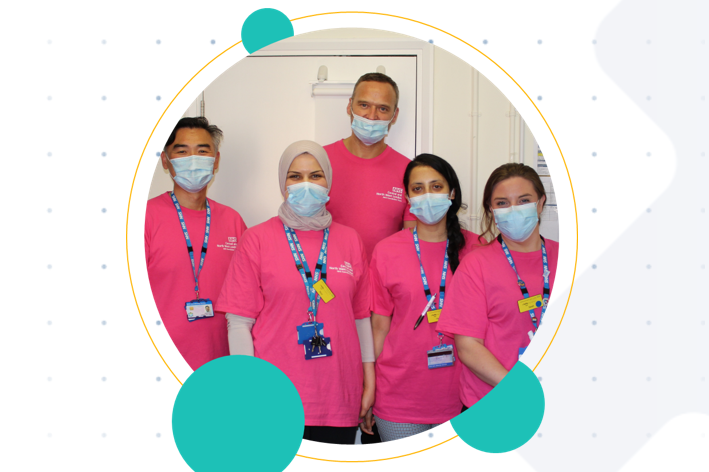
Now operating across 32 wards, the EPMA system uses automated barcode scanning to link patient wristbands to medicine dispensary, streamlining administration. It also improves dosage accuracy and reduces nurse workloads.
Salima Walji, Project and Change Manager at CNWL NHS FTI’ve been doing this for 16 years and the one thing that any project needs is buy in from the top and all the way down. Channel 3 has the EPMA experience to make people listen. Knowing they have a track record of realising benefits and implementing best practise, and critical knowledge around information governance, really helped win senior support.
📰 Read more about this electronic prescribing and medicines administration project in the news: EPMA rollout in CNWL reaches important milestone.
📚 Discover more about EPMA on our website: EPMA systems – success is not just about the technology and Harnessing the power of digital to support CNWL nurses and improve patient outcomes.
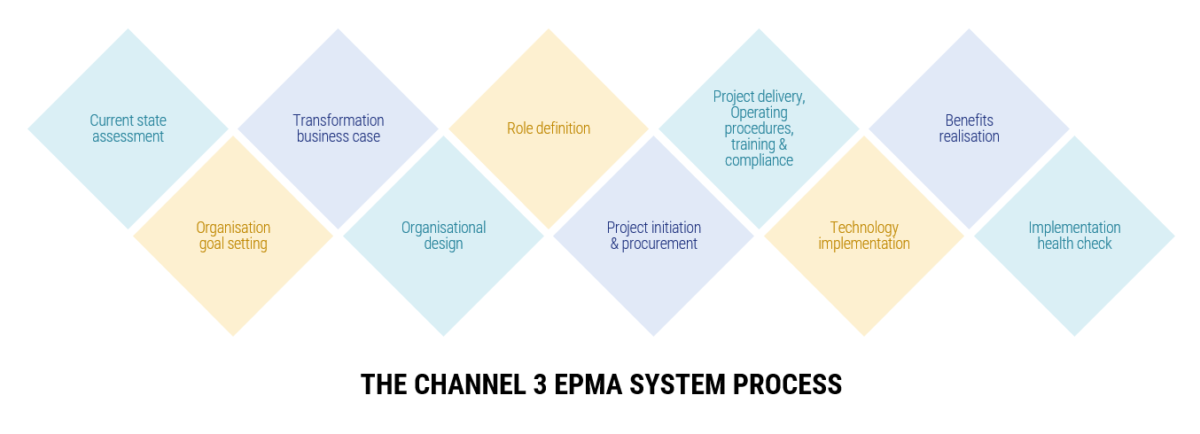
^^ Return to case study menu ^^
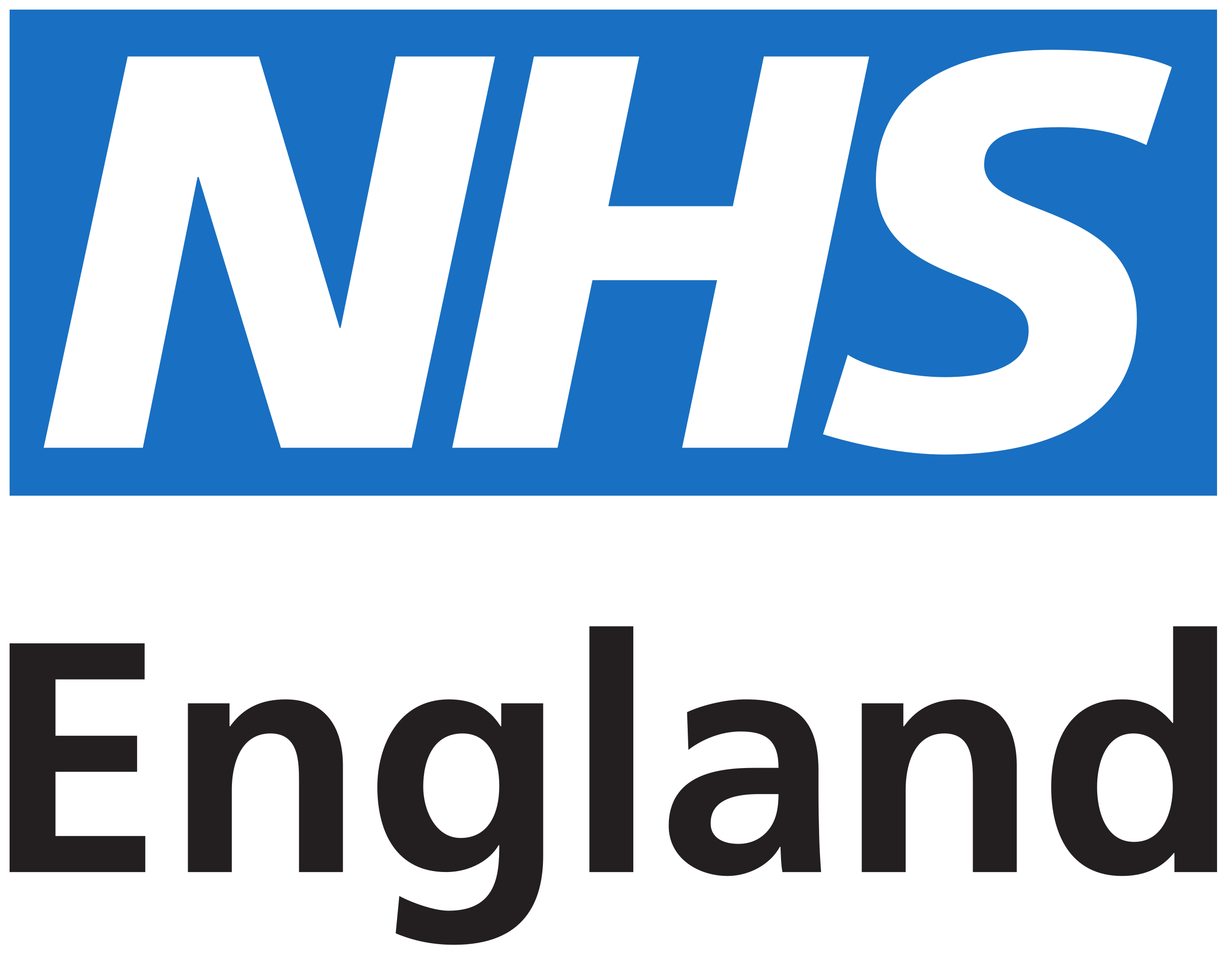
Wearable tech with NHS England
Investigating the possibilities of system-wide digital transformation with NHS England’s Proof of Concept (PoC) Programme.
Channel 3’s vendor-agnostic approach means that we don’t have favourites. However, we do have a strong ecosystem of health and social care tech partners.
We supported the thorough testing of the PoC Programme hypothesis in different ways with several technologies and commercial delivery partners in Northamptonshire, Lincolnshire and West Essex.
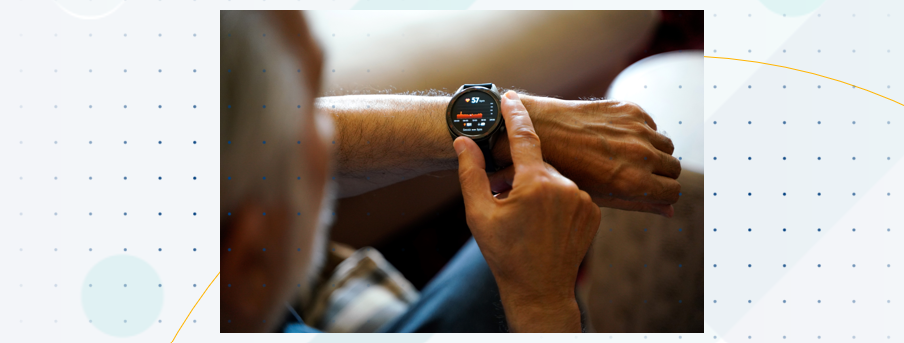
Through the passive collection of physiological, activity and behavioural data from selected patients, the programme’s purpose was to establish whether technology could assist with step up and down services and improved home care.
Channel 3 was asked to undertake this work because we understand where the opportunities and risks lie within the scope of the project. We also understand how to scrutinise suppliers to ensure that they can fulfil all the outlined requirements.
The proof-of-concept continues to generate data and findings which will be published, peer-reviewed and will eventually provide an evidence base to enable fundamental changes in admission avoidance through technology.
NHS England proof of concept programme hypothesisIf information about patient behaviour, conditions and events, captured from wearables, monitors and other smart technologies can predict demand for services, then, providing these technologies to patients and using the data generated will enable providers to pre-empt and redirect demand or design new services.
^^ Return to case study menu ^^

Robotic process automation at Central and North West London NHS Foundation Trust
Automating processes to reduce the burdens on staff and improve clinical safety.
Channel 3 partnered with CNWL to use robotic process automation (RPA) to automate manual tasks and integrate different systems at the trust.
The Channel 3 team worked closely with clinical teams to develop and test the automations, gradually introducing them to ensure they worked as intended.
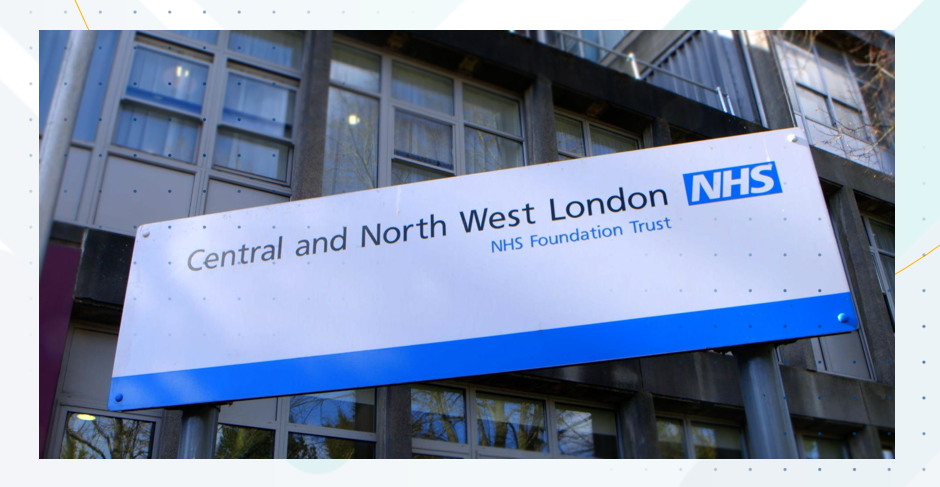
The automations reduced clinical risk and eliminated human error in the areas they were implemented. They delivered significant cost savings and freed time for staff to work on patient-related tasks.
An additional project to automate routine outcome measures data is in development and will provide further cost savings and allow clinicians to spend more time on patient care.
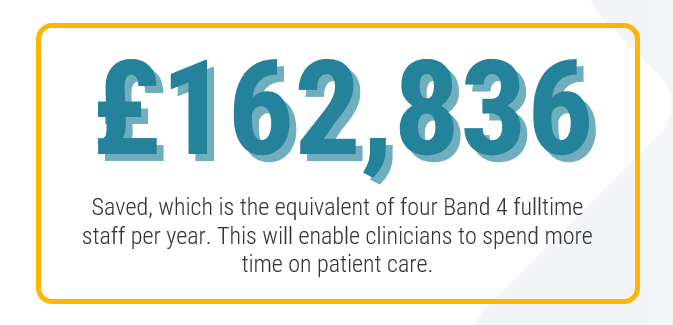
📚 Discover more about RPA on our website: Want help winning the war for health and care talent? Plough some of your efforts into digital.
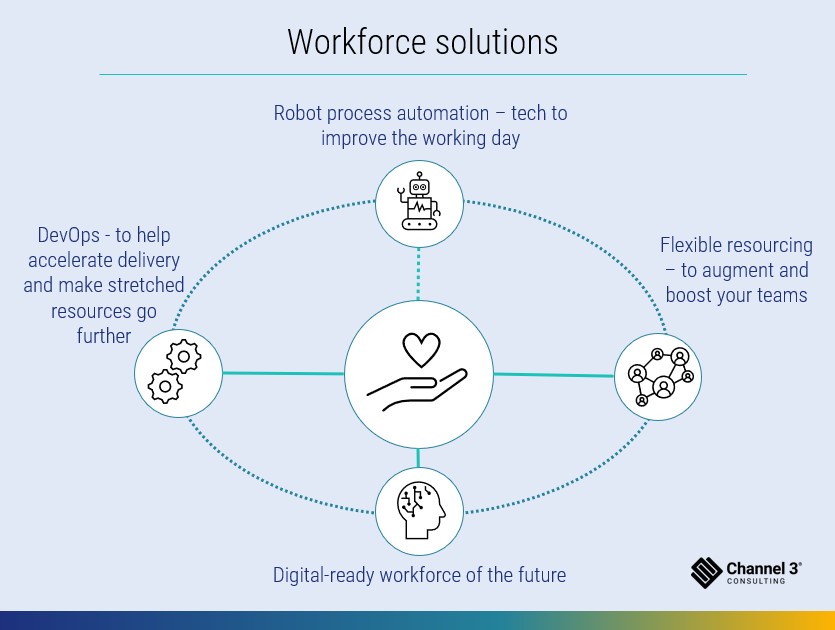
^^ Return to case study menu ^^
